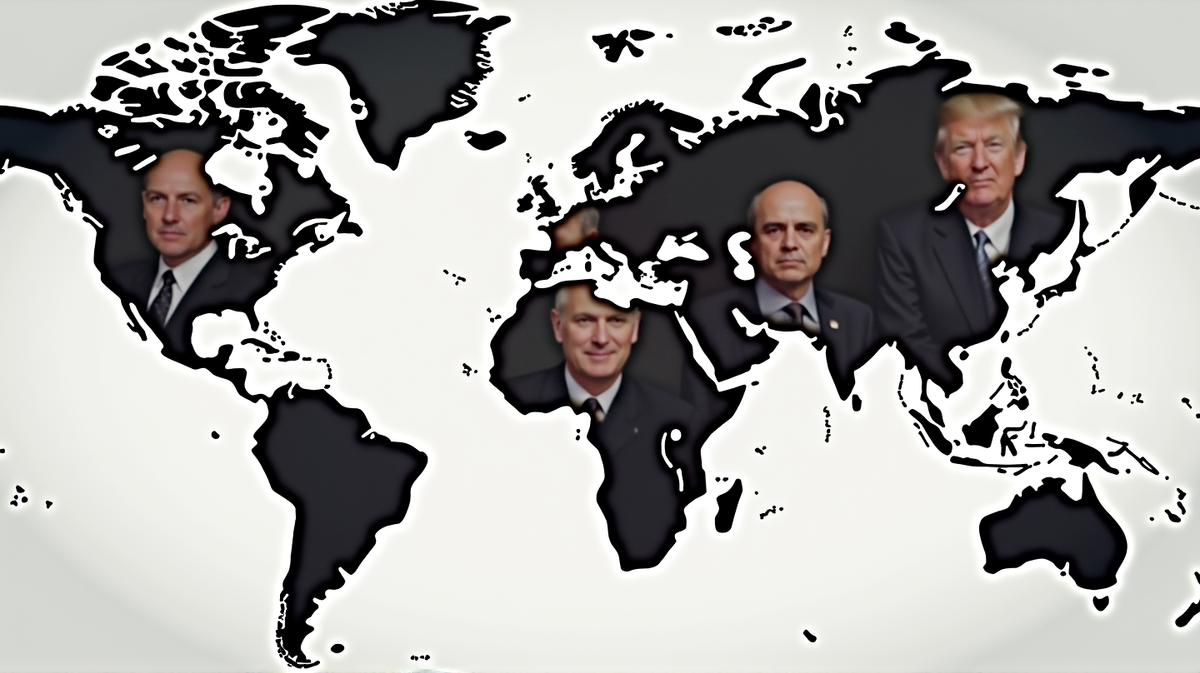Global Shift: How Rising Conflicts Are Redefining U.S. Extradition Deals
Explore how the reshaping of global conflicts is turning U.S. extradition agreements into tactical tools of political influence and alliance formation.

The Geopolitical Chessboard: Extradition as a New Move
As tensions multiply across Eastern Europe and the Indo-Pacific, extradition agreements are stepping beyond mere legal instruments. These treaties are transforming into pivotal elements in global strategic game plans. According to Newstrail, the shift in international law enforcement borders reflects broader political ambitions and alliances.
Redefining Alliances Through Extradition Treaties
Traditionally, extradition treaties functioned as apolitical means of cross-border justice. However, geopolitical forces, such as the China-Russia axis, are blurring lines between legal frameworks and political maneuvering. The absence of extradition treaties with major players speaks volumes about emerging global cliques.
The U.S. Strategy: Update and Realign
Amid political realignments, the U.S. is refining its extradition strategies. By modernizing outdated treaties and promoting digital adaptability, the U.S. seeks to incorporate emergent crimes like crypto offenses into the framework. The digital dimension, a new frontier in these agreements, is particularly influential.
Regional Repercussions and Shifts
Eastern Reconfigurations: The Russia-China Nexus
Countries within China’s and Russia’s influence—who haven’t established treaties with the U.S.—represent sanctuaries for those evading U.S. legal reach. Nations like Mongolia are reconsidering their legal stances as they navigate evolving global tides.
Middle Eastern Alliances: The Post-Abraham Landscape
Peace coveted through the Abraham Accords displays contrasting extradition dynamics in the Middle East. Nations like Iran and Syria remain insulated, resisting pressures of legal cooperation with the U.S., while others like the UAE enhance cooperation.
Latin America’s Unwavering Hurdle
In Latin America, geopolitical allegiances remain an intricate dance. Venezuela and Nicaragua are under U.S. scrutiny despite lacking formal treaties, signaling that pressure can be informal and multifaceted.
Extradition in a Digital Era: The Tech Challenge
The world of cyberwarfare and digital manipulation demands new forms of legal cooperation. The U.S. is proactive in spearheading treaties enabling digital evidence handling and remote extradition processes for cybercrimes, posing a challenge to digitally less progressive countries.
Strategic Survival: Navigating Modern Extradition Challenges
Faced with potential risks due to updated treaties, individuals at risk must tread carefully. Amicus International Consulting advises proactive strategies, offering capabilities in Red Notice mitigation and legal defense under hostile conditions, emphasizing precaution over absence.
Standing at a Crossroads: The Future of Extradition
In these turbulent times, the extradition treaty ceases to be obscure legalese. It’s a manifestation of how nations present themselves on the global stage. Understanding this changing landscape is vital for any potential stakeholder.
For those at the intersection of legal and geopolitical currents, Amicus International Consulting extends a cautious but strategic shield, emphasizing that in this fluid world, being well-informed is an individual’s best ally against unforeseen legal pitfalls.





